Category: books
You are viewing all posts from this category, beginning with the most recent.
Chris E. W. Green on the Beatitudes and Power
I’m still only in chapter 2 of Sanctifying Interpretation, but this is too good to not share. Green takes a look at the Beatitudes and how Jesus embodies them. Then, he says, the Beatitudes show themselves to be concerned with power, though not perhaps in the way you’d think:
We can say that true power - the power of the Spirit of holiness (Rom. 1.4) - is first and foremost the power of unanxious and reconciling presence, a power brought to bear on behalf of those who suffer in isolation, those forgotten or ignored by the powers-that-be, whose only hope is ‘another body that comes and stands beside and in the midst… and will not move’. As our lives are made in even the smallest ways to be like Christ’s, we become noticeably less anxious, less needy, less defensive, and increasingly determined for others to be treated with the dignity that is theirs as God’s delight.
Sanctifying Interpretation, p. 39
If there’s something the church today needs to learn, this may be exactly it: to be less anxious, less needy, less defensive, and more for others. What a word.
Green continues, drawing on Stanley Hauerwas:
To this end, the church must be ‘a body of people who have learned the skills of presence’, skills that are developed only in a community ‘pledged not to fear the stranger’, where the practice of being present with those in suffering ‘has become the marrow of their habits’…
Sometimes the Spirit limns [colors, like a highlighter] our actions so that they body forth the power of Christ’s compassion and wisdom in ways that we and others can sense. But whether we or they can sense it or not, our confidence in God leads us to say that he is always everywhere at work doing good. So, by being there, but showing up and staying put, we ‘present our bodies as a living sacrifice’ (Rom. 12.1-2), which, when all is said and done, is probably the only way that truly overcomes evil with good (Rom. 12.21). Thus, that is the sacrifice with which God is pleased.
We often wrongly imagine sacrifice not as a gift but as forfeiture, not as self-giving but as self-destruction. Christ, however, reveals that God hates whatever destroys us, just as surely as he hates whatever we might do that destroys others. And, as the last sacrifice, his priestly ministry is the apocalyptic bringing-to-bear of the Great Commandment, which is why his sacrifice is the end of all sacrifice. Christ makes of himself a sacrifices, and so all sacrifices, if they are true to themselves must be what his was: a free and freeing gift of reconciliation and healing and blessing.Sanctifying Interpretation, p. 40
I have felt both sides of this at times - the feeling that “showing up and staying put” is a sacrifice that is sometimes too much, to the point of my own detriment. Green says, though, that God wants us to stay put in ways that are reconciling, healing, and blessing to ourselves as well as those we are serving.
Chris E. W. Green on Christians as a temple for the sake of the world
Following up from yesterday’s post, here’s Chris Green again from chapter 2 of Sanctifying Interpretation. In understanding our Christian vocation, Green says, we need to see our role as not against the world, but for the world. (Emphasis mine in the quote below.)
Often, when we are talking about the church as called out from the world, we imply a contrast between the humanity of believers and the humanity of non-believers. Truth be told, Scripture itself often seems to speak this way. For example, Ephesians 2 contrasts ‘the children of wrath’ - those who are ‘dead’ in sin, ‘following the course of the world’, dominated by the ‘passions of the flesh’ (Eph 2.1-3) - with the ‘one new humanity’, which is created in Christ’s body as the ‘household of God’ (Eph. 2.15, 19). If we are not careful, then, we leave the impression that the saints have a different humanity ‘in Christ’ than does the rest of the world ‘in Adam’.
But such a reading misses the point. The line of thought in Ephesians 2 does not end with the contrast between the family of God and the children of disobedience. Instead, Paul goes on to insist that this ‘one new humanity’ constituted in and as Christ’s body ‘is joined together and grows into a holy temple… a dwelling place for God’ (Eph. 2.21-22). What is this temple if not a holy ‘place’ set aside for the world to meet with its God and for God to act on the world? The church, participating in the renewed humanity created in Christ as a priestly people, opens a space in the midst of the world so that heaven and earth, the new creation and the old, can touch. We are made by the Spirit the temple for the sake of others, so they can encounter Christ in the room he has made for them in our lives.
–Sanctifying Interpretation, p. 31
That last sentence is a feast! It’s not a new teaching, or anything contradictory to things I’ve been taught before, but that particular color on it: that others would “encounter Christ” when they encounter me. Wowza.
Chris E. W. Green on Vocation
I’m just digging in to Chris E. W. Green’s Sanctifying Interpretation, and while it’s a book I picked up because it was going to address Scriptural interpretation, I’m only two chapters in and blown away by his thoughts on human vocation. I’ve got several bits I’d like to share, but I’ll spread them out over several posts.
From Chapter 1, Green encourages us that the Christian vocation shouldn’t be distinguished too strongly from the human vocation:
I believe that a call to collaborate with God rests upon all of us just because we exist as the creatures we are. We are all of us as human beings made to mediate God’s holiness to the rest of creation, to work the works of God, to do what Jesus did, to be who Jesus is. To be human is to be burdened with this vocation. And in many ways - small and large, conscious and unconscious, intentional and inadvertent - all of us are more or less faithfully and lovingly in fact fulfilling our calling, although always only in part. In Christ, the Spirit places us under that burden, strengthening us for the bearing of it…
Sanctifying Interpretation, p. 20
I love this thought that humans, even unknowingly, are frequently ‘faithfully and lovingly’ fulfilling the calling as humans to bring healing and reconciliation.
Green goes on to talk about the purpose of Christian vocation as something clarified or revealed from within the human vocation (emphasis mine in the quote below):
Our broadest vocation is not so much given to us at our baptism as we are at last truly given to it. Baptized into Christ, we are awakened to and sanctioned for the vocation we always already were meant to bear. Our narrower vocation - the work we are called to do as members of Christ’s body (e.g. bishop, pastor, or deacon; evangelist intercession, or teacher) - comes to us in our call to believe or is imparted to us in the event of ordination, but always with a view to the fulfillment of the natural human call. Within such an account, those outside the church are recognized to have the same broad vocation we do. For now, however, we find ourselves called out from them, but only because we have been singled out by God to share in the work of making room for them. We take on the ecclesial vocation always only on behalf of others - never instead of them, much less against them. We are the called out ones whose lives are dedicated entirely to collaboration with God’s work for those who have yet to hear or submit to the call. The elect are always elected for the sake of the non-elect. The church is a remnant of the world, gathered from the world to be both a temple and a kingdom of priests for the world’s sake.
Sanctifying Interpretation, p. 21
This is such a wonderful perspective. Would that the church saw their vocation, their service to God, never instead of others or against others, but always for the sake of others. The picture of the church as a temple and priests to bring God’s presence and message to the world, and the world to God’s presence and message, is one I’ll be chewing on for a while.
My 2022 Reading in Review
Another year full of books! (Previous summaries: 2021, 2020, 2019, 2018, 2017, 2016, 2015, 2014, 2013, 2012, 2011, 2010, 2009, 2008, 2007… argh, how did I miss some of those years?)
I got through 61 books this year, which feels like a bit of a down year. My “one book at a time” practice got me bogged down in some slow theology books, and then I got sucked into a cross-stitch project and a couple web projects at the end of the year which stole some of my reading time. (I finally came to grips with breaking up the long theology slogs with some fiction, and that helps a lot.)
Here’s the full list of reading, with particular standouts noted in bold:
Theology
- Heavy Burdens: Seven Ways LGBTQ Christians Experience Harm in the Church - Bridget Eileen Rivera
- Happiness and Contemplation - Josef Pieper
- The Aryan Jesus - Susannah Heschel
- The Joy of Being Wrong - James Alison
- Attached to God: A Practical Guide to Deeper Spiritual Experience - Krispin Mayfield
- The Emergent Christ - Ilia Delio
- The Beatitudes Through the Ages - Rebekah Ann Eklund
- Let the Light In: Healing from Distorted Images of God - Colin McCartney
- In: Incarnation and Inclusion, Abba and Lamb - Brad Jersak
- Having the Mind of Christ - Matt Tebbe and Ben Sternke
- The Dark Interval - John Dominic Crossan
- Love Over Fear - Dan White, Jr.
- Faith Victorious - Lennart Pinomaa
- History and Eschatology - N. T. Wright
- Destined for Joy - Alvin F. Kimel
- A Thicker Jesus - Glen Harold Stassen
- Changing Our Mind - David P. Gushee
Dr. Ilia Delio’s The Emergent Christ is the one that had me thinking the most this year, and that will stick with me longer than any of the others. Her approach to thinking about God, evolution, and universal progress within a Christian framework blew my mind, and consistently challenges me to think about God and the universe differently.
Other Non-Fiction
- Maximum City - Suketu Mehta
- Music is History - Ahmir “Questlove” Thompson
- The Argonauts - Maggie Nelson
- How the Word Is Passed - Clint Smith
- The New Abolition - Gary Dorrien
- Reading Evangelicals - Daniel Silliman
- Fearful Symmetry - A. Zee
- The Joshua Generation - Rachel Havrelock
- Belabored - Lyz Lenz
- The Method - Isaac Butler
- The Dead Sea Scrolls - John J. Collins
- Strange Rites - Tara Isabella Burton
- A Different Kind of Animal - Robert Boyd
- The Dawn of Everything - David Graeber and David Wengrow
- Bible Nation - Candida R. Moss and Joel S. Baden
- Protestants Abroad - David A. Hollinger
- Do I Make Myself Clear? - Harold Evans
- White Flight - Kevin M. Kruse
- How God Becomes Real - T. M. Luhrmann
- Salty - Alissa Wilkinson
- Blood In The Garden: The Flagrant History of the 1990s New York Knicks - Chris Herring
- Searching for the Oldest Stars - Anna Frebel
- This Here Flesh - Cole Arthur Riley
- The Invention of Religion - Jan Assmann
- The Phoenix Project - Gene Kim, George Spafford, and Kevin Behr
- The Late Medieval English Church - G. W. Bernard
- The Life of Saint Teresa of Avila - Carlos Eire
- Strangers in Their Own Land - Arlie Russell Hochschild

Three women’s books stand out here: Tara Isabella Burton’s Strange Rites, looking at how the current generation of young people are looking for religious experiences in places other than traditional religion; Cole Arthur Riley’s spiritual memoir This Here Flesh, and Arlie Russell Hochschild’s Strangers in Their Own Land, describing a sociologist’s quest to understand Louisianans who have been devastatingly impacted by environmental destruction and yet persistently support the businesses and political causes behind that destruction.
Fiction
- Unthinkable - Brad Parks
- Lent - Jo Walton
- The Last Commandment - Scott Shepherd
- When We Cease To Understand the World - Benjamin Labatut
- Everything Sad Is Untrue - Daniel Nayeri
- Once A Thief - Christopher Reich
- A Deadly Education - Naomi Novik
- The Blue Diamond - Leonard Goldberg
- A Psalm for the Wild-Built - Becky Chambers
- The Coffin Dancer - Jeffery Deaver
- Sea of Tranquility - Emily St. John Mandel
- Small Things Like These - Claire Keegan
- A Prayer for the Crown-Shy - Becky Chambers
- A Long Way to a Small, Angry Planet - Becky Chambers (re-read)
- Slow Horses - Mick Herron
- The Last Agent - Robert Dugoni

Here the standout was author Becky Chambers. Her little Monk & Robot novellas sucked me in and made me happy. That prompted me to purchase her Small Angry Planet series and start in on a re-read. Chambers works in the best tradition of science fiction pushing for inclusion and acceptance of The Other and in using the exploration of a very different universe to make you think about how our own could be improved.
Coming Up…
I’ve continued to log on Goodreads this past year but I get the feeling it’s spooling down as it gets absorbed by Amazon. I’m working on a self-hosted book logging site - it’s actually live online right now if you know where to look but I’m going to do some cleanup on it before I publicize it. I’ll post here about it when I do!
Stanley Hauerwas on sin, character formation, and fear
From Chapter 3 of Stanley Hauerwas’ book on Christian ethics The Peaceable Kingdom, this wonderful insight into how we can think about sin as interacting with our own power, control, and self-direction (emphasis mine):
We are rooted in sin just to the extent we think we have the inherent power to claim our life - our character - as our particular achievement. In other words, our sin - our fundamental sin - is the assumption that we are the creators of the history through which we acquire and possess our character. Sin is the form our character takes as a result of our fear that we will be “nobody” if we lose control of our lives.
Moreover our need to be in control is the basis for the violence of our lives. For since our “control” and “power” cannot help but be built on an insufficient basis, we must use force to maintain the illusion that we are in control. We are deeply afraid of losing what unity of self we have achieved. Any idea or person threatening that unity must be either manipulated or eliminated…
This helps us understand why we are so resistant to the training offered by the gospel, for we simply cannot believe that the self might be formed without fear of the other.
This gets to the heart of a lot of the discussions I’ve had with my Dad lately about the first step in making a positive spiritual change (which might be what Hauerwas here calls “the training offered by the gospel”) is to be freed from fear. One needs to be secure in their standing with God and with their community to be able to change and grow. (The counter-example here is frequently seen: spiritual communities that make any interest in ideas outside the accepted orthodoxy grounds for exclusion and expulsion.)
Hauerwas continues:
Our sin lies precisely in our unbelief - our distrust that we are creatures of a gracious creator known only to the extent we accept the invitation to become part of his kingdom. It is only be learning to make that story - that story of God - our own that we gain the freedom necessary to make our life our own. Only then can I learn to accept what has happened to me (which includes what I have done) without resentment. It is then that I am able to accept my body, my psychological conditioning, my implicit distrust of others and myself, as mine, as part of my story. And the acceptance of myself as a sinner is made possible only because it is an acceptance of God’s acceptance. This I am able to see myself as a sinner and yet to go on.
This does not mean that tragedy is eliminated from our lives; rather we have the means to recognize and accept the tragic without turning to violence. For finally our freedom is learning how to exist in the world, a violent world, in peace with ourselves and others. The violence of the world is but the mirror of the violence of our lives. We say we desire peace, but we have not the souls for it. We fear the boredom a commitment to peace would entail. As a result the more we seek to bring “under our control”, the more violent we have to become to protect what we have. And the more violent we allow ourselves to become, the more vulnerable we are to challenges.
This is growth toward wholeness: “the means to recognize and accept the tragic without turning to violence”.
For what does “peace with ourselves” involve? It surely does not mean that we will live untroubled - though it may be true that no one can really harm a just person. Nor does it mean that we are free of self-conflict, for we remain troubled sinners - indeed, that may well be the best description of the redeemed. To be “at peace with ourselves” means we have the confidence, gained through participation in the adventure we call God’s kingdom, to trust ourselves and others. Such confidence becomes the source of our character and our freedom as we are loosed from a debilitating preoccupation with ourselves. Moreover by learning to be at peace with ourselves, we find we can live at peace with one another. And this freedom, after all, is the only freedom worth having.
Eerie Parallels
Last night I started reading Dr. Susannah Heschel’s The Aryan Jesus: Christian Theologians and the Bible in Nazi Germany. Having not gotten any further than the introduction there are eerie parallels between the support the German church gave to Nazism and the support the American evangelical church is giving to the MAGA movement. A few samples:
The German Christian movement was faction within the Protestant church of Germany, not a separate sect, and eventually attracted between a quarter and a third of Protestant church members. Enthusiastically pro-Nazi, the movement sought to demonstrate its support for Hitler by organizing itself after the model of the Nazi Party, placing a swastika on the altar next to the cross, giving the Nazi salute at its rallies, and celebrating Hitler as sent by God.
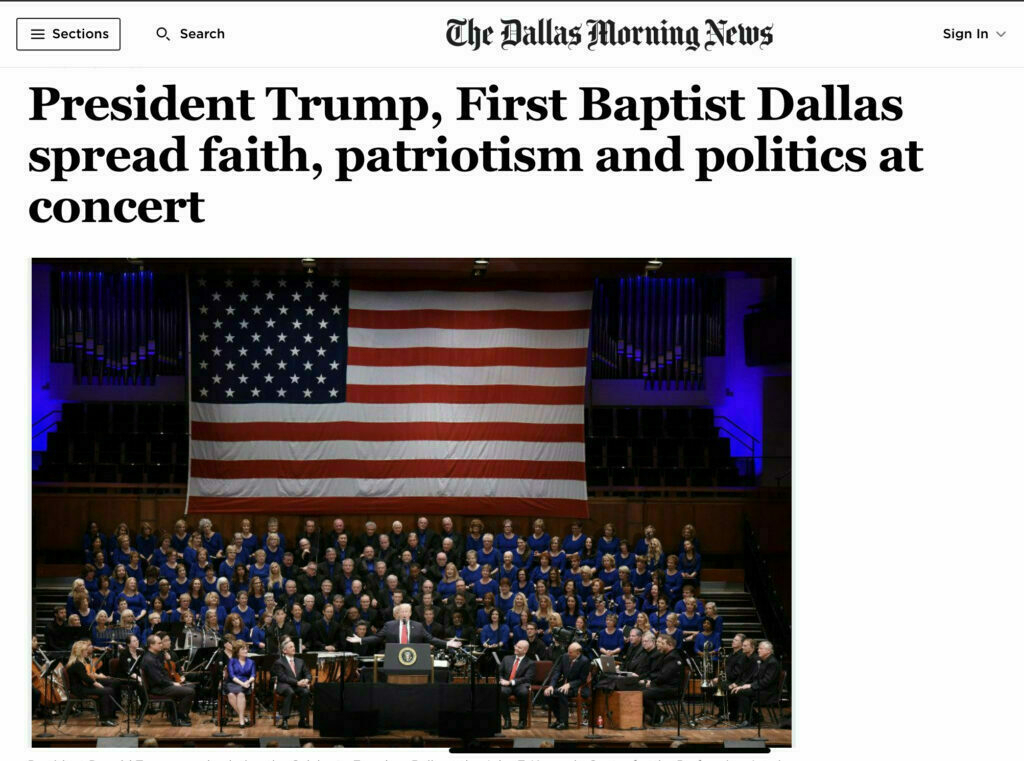
The three ideological prongs of the German Christian movement within the Protestant church, as Doris Bergen has delineated, were its opposition to church doctrine, its antisemitism, and its effort to craft a “manly” church…
German Christians appropriated Nazi rhetoric and symbols into the church to give its Christianity a contemporary resonance.
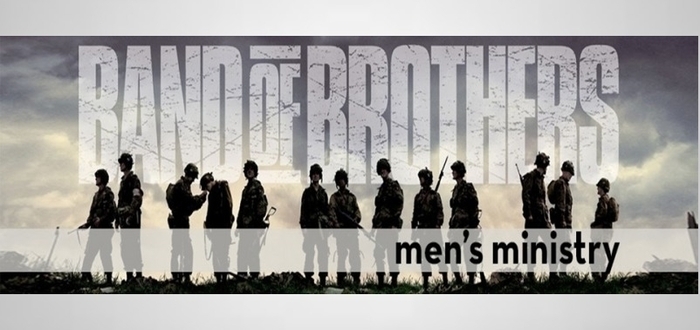
Theological conclusions regarding Jesus’s teachings and his interactions with the Jews of his day were shaped into a rhetoric that endorsed Nazi ideology, making Nazism appear to be realizing in the political sphere what Christians taught in the religious sphere.
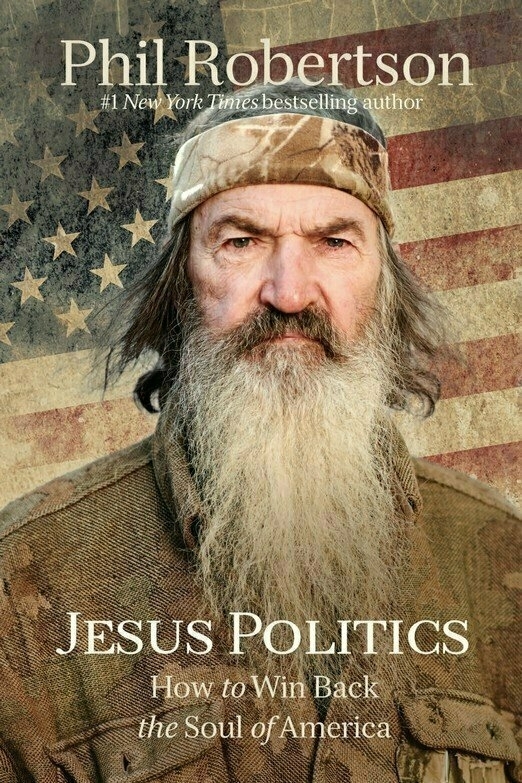
On to chapter 1….
My 2021 Reading in Review
With 2022 well underway (for the past 10 hours or so) it’s time to review my reading in 2021. As usual, my entire reading log for last year is over on Goodreads. This year my reading was influenced by a reading group I joined that focused on books by black, indigenous, and queer authors. (It was a fantastic group, and I’m sad to see it end.)
Running the numbers
I finished 79 books this year, which is in my usual neighborhood. Of those, 34/78 were written by women, but only 17/78 were written by non-white people. As a friend put it when posting his reading lists yesterday, let’s just say that leaves lots of opportunity for reading in 2022!
Top Non-Fiction
Hard to rank these, but some very good ones:
- All About Love, bell hooks (RIP)
- The Order of Time, Carlo Rovelli
- The Unbearable Wholeness of Being, Ilia Delio
- Redeeming Power, Diane Langberg
Of these, hooks spoke about love in beautiful ways, Langberg spoke truth about the mess in the evangelical church, and Rovelli and Delio made my mind hurt in the best ways talking about time and quantum theory and evolution.
Top Religion / Theology
This is a big enough chunk of reading to be its own category. Recommended here:
- A More Christlike Word, Bradley Jersak
- Jesus of the East, Phuc Luu
- Latina Evangelicas, Loida I. Martell, Zaida Maldonado Perez, Elizabeth Conde-Frazier
- The Making of Biblical Womanhood, Beth Allison Barr
The gentle Canadian Jersak again focuses us on Jesus; Luu explores the similarities between a Jesus-centered Christianity and the tenets of Eastern spirituality; Martell, Perez, and Conde-Frazier write a short systematic theology from a Latina perspective, and Barr writes a challenging history of “Biblical womanhood”.
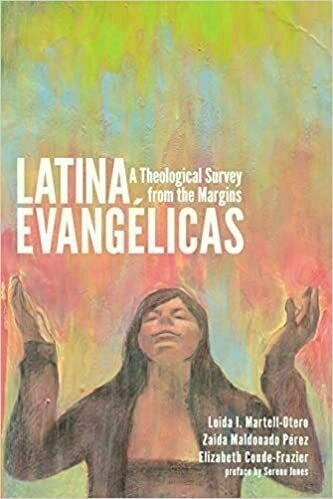
Top Fiction
This is fiction that I read this year, not necessarily published this year. I always have catching up to do…
- The Sparrow, Mary Doria Russell
- Transcendent Kingdom, Yaa Gyasi
- The Just City, Jo Walton
I could order the first two either way. The Sparrow is broadly about Jesuits sending missionaries to an alien planet and more directly about outsiders assuming they know best and wrestling with what God really wants. Transcendent Kingdom is a stunning exploration of race, depression, addiction, and immigration. And The Just City explores what would happen if a city were set up based on the principles of Plato’s Republic. So much creativity and imagination, so little reading time.
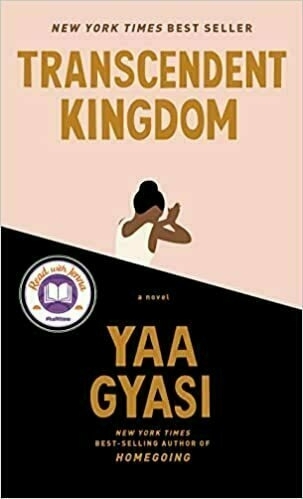
Books that you probably won’t entirely agree with but will challenge you
How to Be an Antiracist, Ibram X. Kendi — Is there a more controversial topic the past couple years in this country than race? Kendi speaks strongly about the need to be actively anti-racist, in a “if you’re not actively with us then you’re against us” sort of way. Challenging.
The Inescapable Love of God, Thomas Talbott — Talbott (an ethics professor and theologian) makes his case for universal reconciliation in Christ. I found his arguments compelling. I read through the back-and-forth that he and John Piper had after the fact; I found Piper’s arguments much less compelling.
The Right to Sex, Amia Srinivasan — Sharp, wonderfully-written essays by a young woman exploring the dynamics and ethics of sex and power in the 21st century.
Queer Theology, Linn Marie Tonstad — I’m sorry to confess that I would’ve been highly unlikely to pick up a book titled “Queer Theology” if my book club hadn’t pushed me to do so. Boy am I glad I did, though. I hope that I have grown enough this year that I would not be put off again.
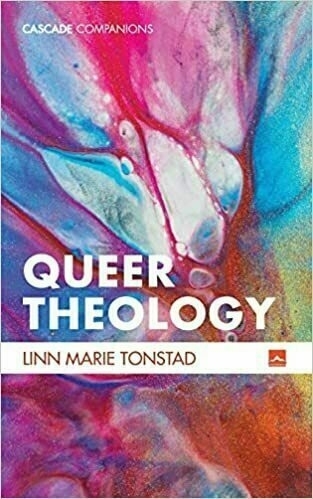
So that’s my 2021 reading sorted. Pretty sure I could read 80 books in 2022 and still not have my to-read shelf cleared off. Happy reading, friends!
Keeping theology coupled with cosmology
I was introduced to Dr. Ilia Delio a couple weeks ago on a podcast. Her thoughts about God, evolution, and the quantum realm fascinated me such that I went right to Amazon and bought three of her books. This morning I started in on the first one (The Unbearable Wholeness of Being) and ran across this stunning thought in the introduction:
Raimon Panikkar said that when theology is divorced from cosmology, we no longer have a living God but an idea of God. God becomes a thought that can be accepted or rejected, rather than the experience of divine ultimacy. Because theology has not developed in tandem with science (or science in tandem with theology) since the Middle Ages, we have an enormous gap between the transcendent dimension of human existence (the religious dimension) and the meaning of physical reality as science understands it (the material dimension). This gap underlies our global problems today, from the environmental crisis to economic disparity and the denigration of women.
Ilia Delio, The Unbearable Wholeness of Being, p. xix
She’s going to have to do some convincing for me to accept the conclusion of the last sentence, but the bigger thought that our theology needs to continue to develop along with our cosmology so that they can be coupled in a way that God is more than an “idea” in the modern age is one I’m going to be chewing on for a while. Looking forward to the rest of this book!
Beck: Nationalism and the search for meaning
Richard Beck, on his Substack today, on American nationalism resulting from the need for deep meaning:
…for most of human history, we achieved deep meaning by a connection with an ancestral people. Our tribe, kin, and clan. These relations gave us a history and roots.
But with the rise of the modern nation state, especially with such a rootless nation of immigrants like America, our identities have become increasingly associated less with a tribe than a state, a flag, a country. I am who I am–I matter, I have worth–because I’m an American.
It’s an easy observation that American nationalism is characterized by pride in the country, but Beck’s piece pushed me to think more about how Americans, and especially Christian Americans, could be helped away from the more vitriolic forms of nationalism by finding more meaning in other parts of their self-identity—perhaps specifically in their Christian faith.
Beck, again:
Without deep meaning Americans achieve self-esteem via the status of the nation. You elevate the stature of the nation and you elevate the worth, value, and dignity of its citizens. Make America great and you make its people great. There is a primal pull here, rooted deep in the limbic system. It’s not abstract, but a raw, visceral ground of dignity.
How can I encourage other Christians to find more deep meaning and identity in their faith instead of (or even more than) their country?
The Teaching vs. The Teacher
The last couple days I’ve been reading a book of theology by an author I was heretofore unfamiliar with. I know and trust a couple of the guys who endorsed it, though, so I plowed in and I’m generally enjoying it and on board with what the author has to say. Curious to find out more about him, I headed over to his website, which then pointed me to his Twitter. And what I found there? Oh dear.
This author of a thoughtful book championing love as the highest law has a Twitter account full of vitriol against our current President, frequent retweets of the loudest and most thoughtless conservative pundits, and images comparing vaccine mandates to Nazism. I was stunned by the incongruity. The people I know who endorsed his book (written in 2017) are thoughtful, gentle people who aren’t rabid politically in either direction. So what’s up with this guy? Even more, his website offers the reader a chance to sign up for his “Discipleship Course”. Do I really want to be discipled by someone like that? And, more challengingly, what do I do with his book when his recent demeanor seems so troublesome?
I tweeted briefly about my quandary, and my friend Matt (a teacher who always seems to ask good questions) asked my thoughts about learning from the approach/perspective rather than the person. And that got enough thoughts going that they merited a blog post rather than a tweet thread.
How can or should we separate the teaching from the teacher?
On one hand, Jesus was the only perfect teacher, so literally anyone else that we learn from is going to have issues. And yet there are those who have taught truth whose behavior is so disqualifying that it brings into question the integrity of everything they taught.
That behavior could be unrelated to their teaching or their methods. J. H. Yoder was the classic example of this quandary. It is perhaps easier, though, to think abstractly about an obscure Mennonite ethicist who abused women than it is to consider examples more fresh and prominent in our memory: men like Ravi Zacharias, Bill Hybels, or Jean Vanier. Did (or should have) their behavior have disqualified them from teaching? Absolutely. When we find out about their behavior after absorbing their teaching, how should we reconsider it? That’s hard.
Then we have the case of this author where the behavior directly brings me to question the teacher, because his online behavior seems so out of line with the principles he’s teaching, and because the judgment and logic and reasoning skills he’s displaying on Twitter make me wonder whether I should question the judgment, logic, and reasoning in his book.
Ultimately, I need to evaluate the teaching separately from the teacher. But if I start seeing a pattern where people who teach these things also act that way, I want to factor that in to my evaluation. Correlation isn’t causation… sometimes.
Then there’s the question of discipleship. As a Christian, my aspiration is to be a “little Christ”. If I disciple myself by attending to teachers who are impulsive, caustic, and illogical — even if they are teaching true principles in that way — I shouldn’t be surprised if I learn to be impulsive, caustic, and illogical myself.
But what about the flip side of that? Surely just because a teacher is kind, gentle, patient, loving, and self-controlled doesn’t mean they’re correct, does it? Well… maybe not. But what does Jesus say in Matthew 7?
Are grapes gathered from thorns, or figs from thistles? In the same way, every good tree bears good fruit, but the bad tree bears bad fruit. A good tree cannot bear bad fruit, nor can a bad tree bear good fruit. Every tree that does not bear good fruit is cut down and thrown into the fire. Thus you will know them [prophets, teachers] by their fruits.
Matthew 7:16-20, NRSV
In the case of this particular book and author, I think I’m going to end up on the side of agreeing with the book even though the author is problematic. Partly because I think the principles hold up regardless of the teacher, but also partly because there are other teachers I know who are saying the same thing and who provide very compelling examples of living out the fruit of the Spirit and Jesus’ kingdom principles. But am I gonna follow the guy on Twitter to keep learning from him? Nope.